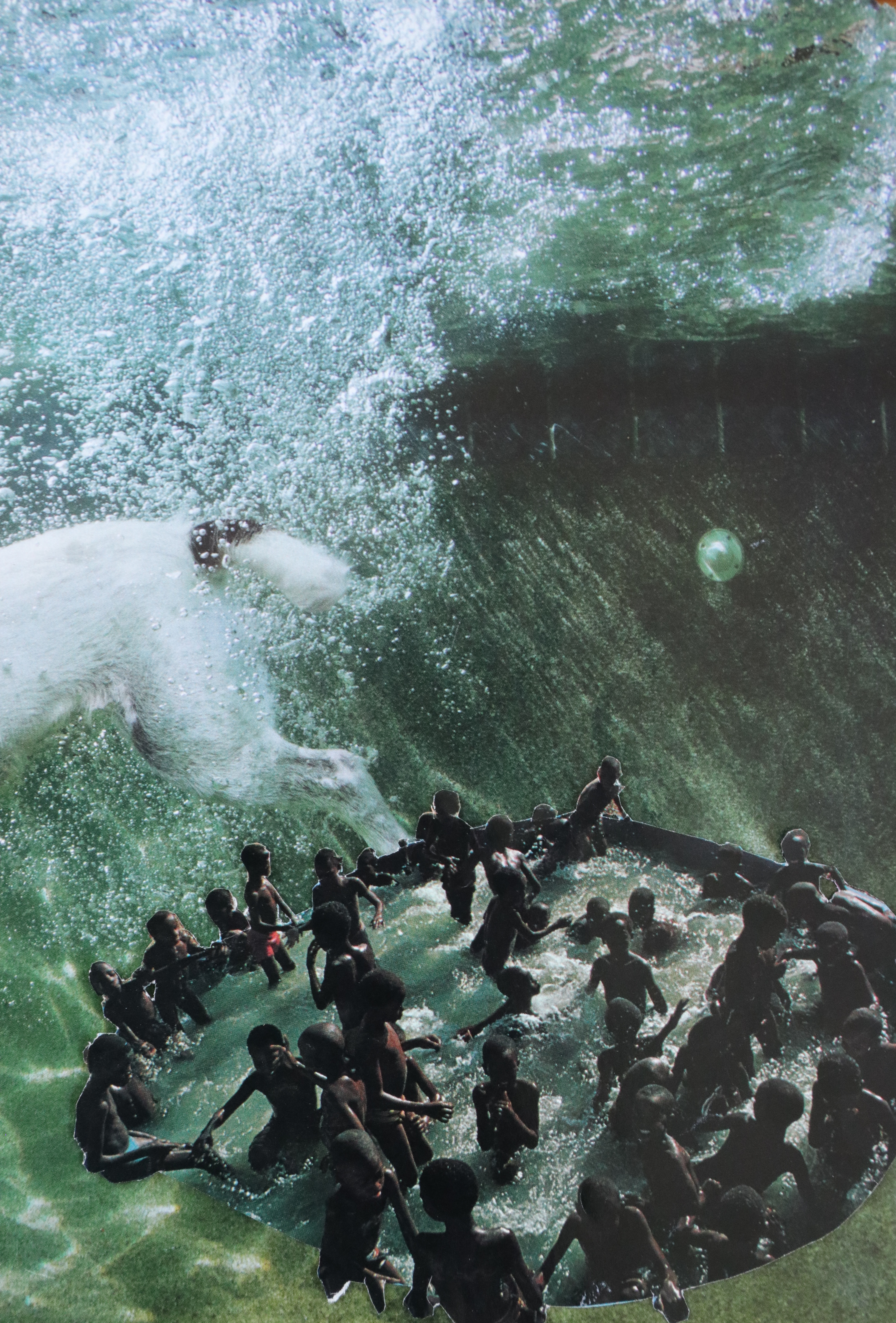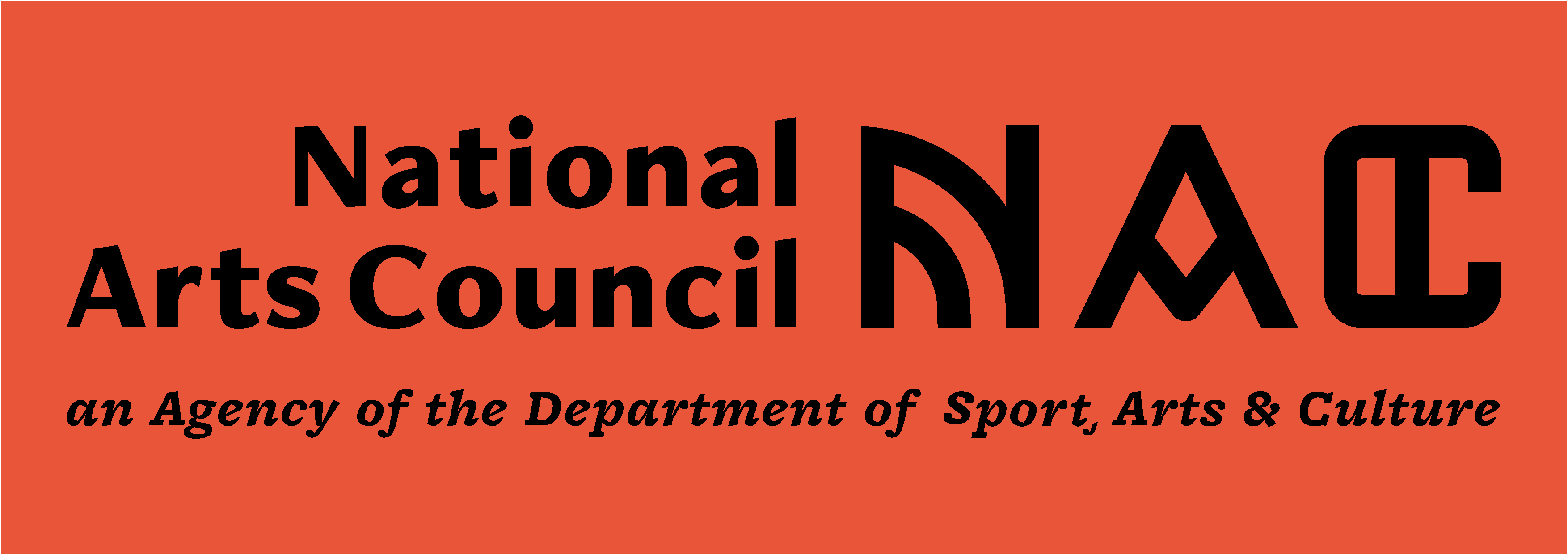Look Mama, A Negro, is a conversation based on ideas explored by Frantz Fanon on race, identity and objectification covered in his book titled Black Face White Mask. In this book, Fanon recounts being singled out by the white gaze because of his skin colour and this show departs from the realizations he has that follow that moment. The realization is that, blackness is a problem and it is a condition. Before one is black however, they are human, each with their own ambitions and purposes to fulfil. After however, one becomes all the associations that are made with being black- a fetischism, and a racial defect. Juju, statue worshipping, poverty, slave-ships and lynching are now the identity that people of colour are associated with.
This exhibition is the collective reflection of eight black artists, each grappling with this condition of being black, understood best as; the inability to escape the epidermal skin. What does it mean to be an artist and a creative that is locked in any one particular identity, not of your choosing? In this show each artist expresses their unique response to being black, practicing art in modern Western society- wearing the White Mask.
The textured personal narratives of each artist’s accounts of being black are borne through various themes of Afrofuturism and the use of traditional African folktale to re-envision and retell the story of Blackness and Black Existence. There are works also, that discuss the present conditions of blackness, displaying the anxieties that occur as a result of racial categorisation and identity formation.
There is a general theme of the chaos around black life being displayed, critiques on the existence of the township, slave- labour under capitalism and black femininity- both in its valour and in its gloom are all explored throughout this show. Past events such as Black Lives Matter internationally and more locally moments such as Rhodes Must Fall, were essential in putting race based inequality squarely in the global spotlight. But when there are no global movement or national calls, the issue of the problem of blackness is left outside of the spotlight. This becomes extremely alienating for those that cannot escape their condition.
Look Mama, A Negro, therefore becomes an invitation to its audience to consistently confront the realities of racism. Using relatable narratives in visual form, each artist portrays a different context which reveals the deep impacts of violent anti-Blackness, from the colonial and the postcolonial, that are all too alike. The reality is that when people of colour confront the ways that they are portrayed by others, they are faced with themselves, reinterpreted. The black interpretive experience therefore becomes important and needed since it has the ability to end the vicious cycle of objectification. Black existence and black knowledge in this way become black resistance.
Image Above: Ranji Mangcu, uMamQadi, 84,1 x 59,4 cm, Archival Epson Watercolour Paper, edition of 5, R5,600 ex. VAT

Thato Toeba
Untitled V, 2021
Collage Print, 29,7 x 42 cm, Edition of 5
R2,500 ex. VAT
FEATURED ARTISTS

EXHIBITION CURATOR, MOTLALEPULA PHUKUBJE
Motlalepula Phukubje is a Johannesburg born, African Studies alumni from the University of Cape Town. She is interested in bringing in disciplinary insights from political theory to incorporate them with the arts in a way that represents Fallism which, itself as a theory is founded on Pan Africanism, Black Consciousness and Black Radical Feminism. Her work in essence is concerned with the black psyche and it departs from the assumption that black people/ postcolonial subjects are psychologically affected by global racism in varying ways. Motlalepula is focused primarily on the decolonization of art and the decolonization of public culture, heritage and what she understands to be “Black Spaces” understanding that most spaces are affected by coloniality. By working with African artists Motlalepula seeks in this regard to, explore the ways that Art by Africans can be created and curated in a way that revolutionizes and radicalizes not only the art world but global and national politics as a whole through the recreation of not only artistic but public space.
LegakwanaLeo Makgekgenene, Yamasa (Morning Star)
Thandiwe Gula-Ndebele
Ingilosi Liqhawe: Sibonise Iqiniso Emehlweni, 2021
Photomontage, 75 x 112 cm, edition of 5
R8,300 ex. VAT

Thato Toeba
Untitled IV, 2021
Collage Print 29,7 x 42 cm (A3), edition of 5
R2,500 ex. VAT
To enquire about any of the artworks in this exhibition
Further Reading In Articles
African Artist Directory





























